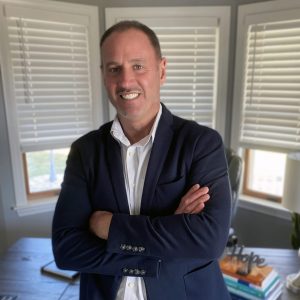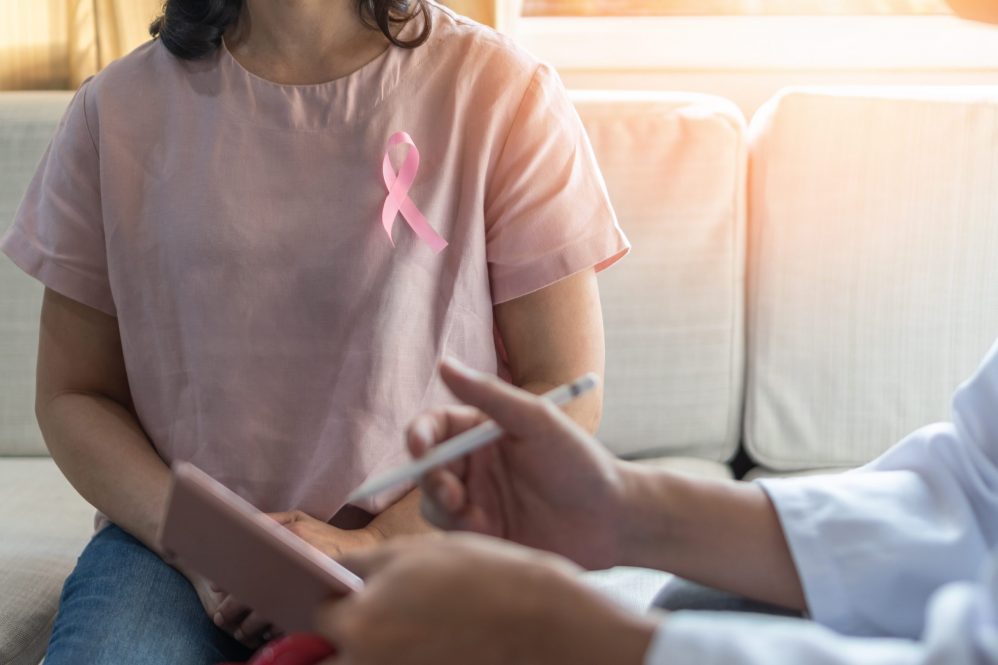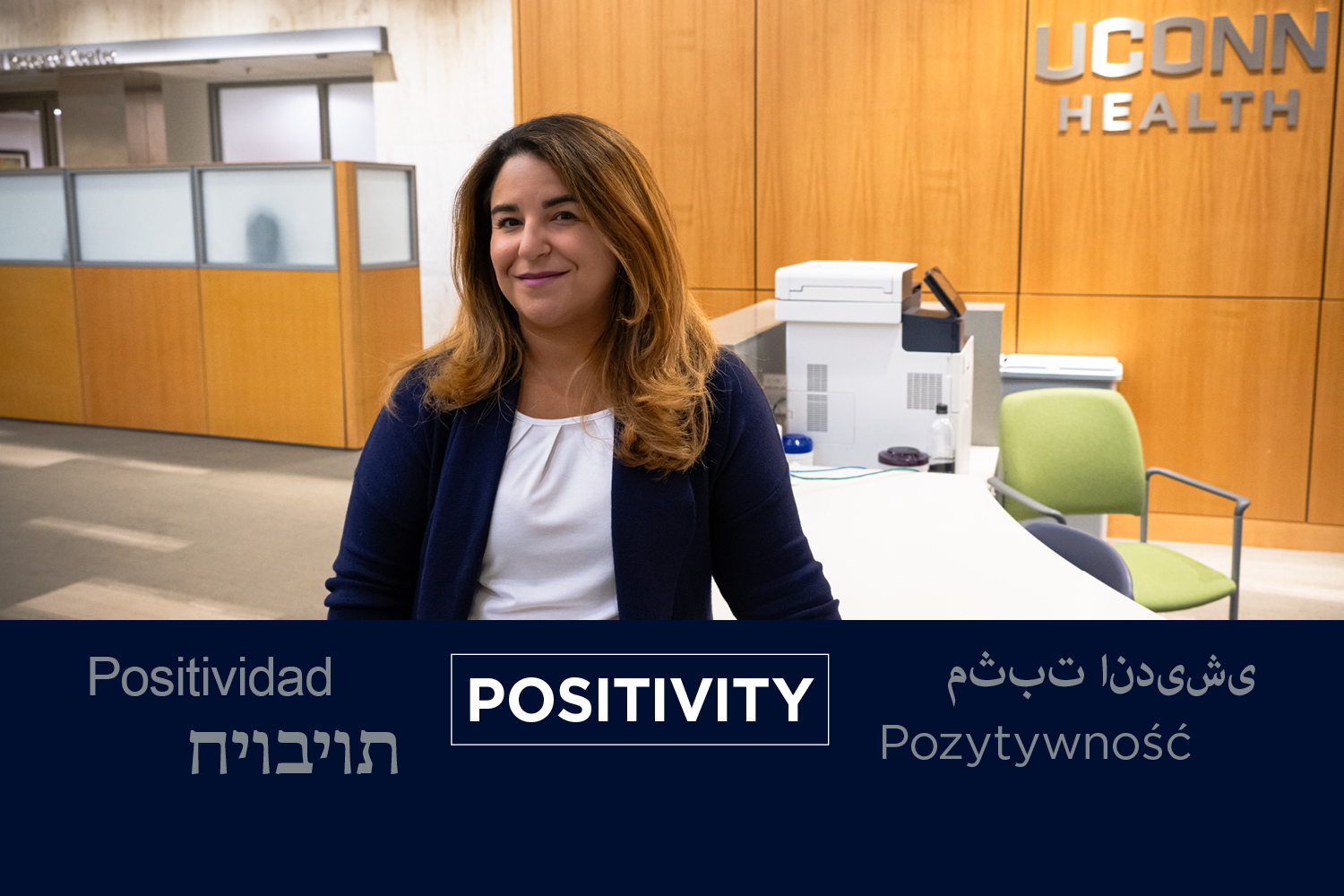In the United States, breast cancer is the most common cancer in women, next to skin cancers. About 1 in 3 women will be diagnosed with breast cancer every year, according to data from the American Cancer Society. The overall 5-year survival rate for localized and regional disease is 99% and 86% respectively, reflecting significant improvements in survival since the late 1980s.
Despite progress in the fight against cancer, a disproportionate burden of cancer continues for many people disadvantaged by the social, political, and environmental systems in which they live.
Keith Bellizzi, professor in the Department of Human Development and Family Sciences in the College of Liberal Arts and Sciences, received funding from the Connecticut Breast Health Initiative (CT BHI) to study how social and lifestyle factors may accelerate aging in adults with a history of breast cancer.
Bellizzi will collaborate with professors Kun Chen and Jun Yan, both faculty in the Department of Statistics, to explore how unemployment, education, racial discrimination, and food and housing insecurity impact the aging process in adults diagnosed with breast cancer.
These nonmedical social factors, also referred to as social determinants of health (SDOH), can drive health disparities and inequities, and have been linked to accelerated aging in non-cancer populations.
“Simply, knowing who is at-risk is not enough,” says Bellizzi.
Research indicates that treatment for breast cancer can cause the body to age faster as treatments like chemotherapy and radiotherapy attack cancer cells and can also damage healthy cells.

“The effects of social determinants of health on accelerated aging in adults with cancer, a group already at-risk due to cancer treatment is virtually unknown. We argue that patients from socially disadvantaged groups might be particularly vulnerable to adverse effects of cancer treatment, including accelerated aging,” says Bellizzi, who is also a principal investigator at UConn’s Institute for Collaboration on Health, Intervention, and Policy (InCHIP).
Since its founding in 2004, the CT BHI, a non-profit organization, has contributed $4.3 million towards breast cancer research and education projects in Connecticut that are not yet eligible for federal funding.
“CT BHI is thrilled to award this grant to UConn and Keith Bellizzi. The mission of our organization is to support leading edge breast cancer research in Connecticut including a focus on survivorship quality of life. Breast cancer is such a complicated disease and Keith has recognized the individual nature of its effects and the disparity of treatments on Survivor aging,” says Joyce G. Bray, President of the CT BHI. “It is our goal to provide seed money for a researcher to prove the capacity of his/her project for much larger funding. Keith’s project is the perfect example of laying the groundwork for future answers.”
The team will use data from the National Institutes of Health All of Us research program to understand how SDOH affects aging in cancer survivors compared to the general population and whether exercise can reduce the risk of accelerated aging.
“Simply, knowing who is at-risk is not enough,” says Bellizzi.
In the general population, physical activity has been shown to affect accelerated aging, but this relationship has not been investigated extensively in oncology settings.
“We can’t easily change the treatments for cancer, so examining a downstream behavior that can be changed, like exercise, could help adults with a history of breast cancer to live longer, healthier lives after treatment,” says Bellizzi.
The All of Us program aims to collect data from more than 1 million U.S. residents to create the most diverse research database to advance health research and better understand disease processes. So far, more than 491,000 participants are enrolled in the research program, and more than half are from racial and ethnic minority groups.
With more than 48,080 cancer survivors in the All of Us database, including more than 10,000 adults with a history of breast cancer, the team will be able to provide a comprehensive look at how these factors interact to influence accelerated aging in diverse populations across the U.S.
Findings from the study will be used to develop screening tools to identify breast cancer patients who have a higher risk of accelerated aging and behavioral interventions to counteract these effects. The study will also inform a future grant application to the NIH to develop targeted screening tools and interventions.
“Given the growing evidence that cancer treatment can accelerate aging, along with possible SDOH impacts and behavioral moderators, it is imperative to identify which SDOH variables may predict, exacerbate, or mitigate accelerated aging and potential moderators that may improve the health of breast cancer survivors long-term. This interdisciplinary project is our first step and will provide insights into how cancer treatment and SDOH may interact which may help demarcate important differences in patients who otherwise seem deceptively similar because they share the same diagnosis,” says Bellizzi.


